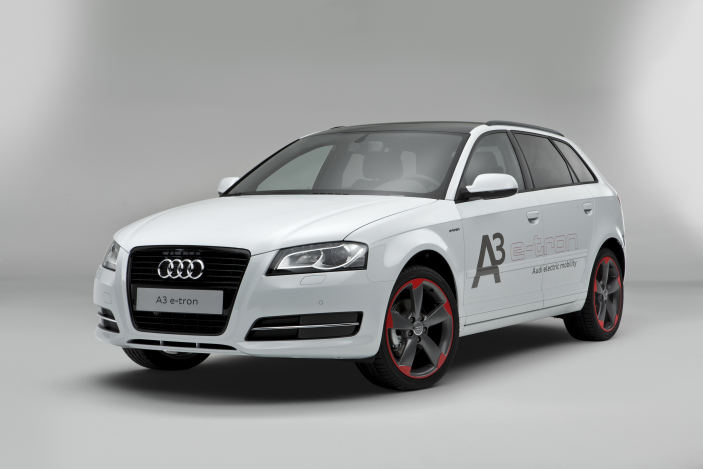At the TED 2012 conference in Long Beach, Calif., recently Audi announced plans to conduct a battery-electric A3 e-tron feasibility study in the U.S. to “define a progressive e-mobility driver experience for premium car buyers.”
The electric vehicle industry is still very small, and motorcar manufacturers are still learning not only about how people feel about electric vehicles, but also about how well the current vehicle designs are able to withstand and also meet people’s needs in various situations. After vehicles are driven for an extended period of time, evidence of their malfunctions as well as complaints and suggestions from their drivers will help manufacturers to decide on what improvements to make.

This e-tron feasibility study is Audi’s first step into the American electric vehicle landscape. It will take place in the San Francisco, Los Angeles, Washington, D.C., and Denver areas and makes use of a vehicle we first brought you word on last year.
“As part of the long-range Audi corporate goal of moving toward CO2-neutral mobility, there will be e-tron plug-in vehicle products exhibiting all of the performance and design attributes Audi drivers have come to expect,” said Johan de Nysschen, President, Audi of America, in a statement.
Audi engineers and technical experts are to monitor the feedback and telematic data from e-tron vehicles in real-world conditions, as part of the pilot program. This data will be used to build better EVs in the future.
The meaning of e-tron
“e-tron” indicates that the vehicle contains an advanced plug-in electric power train. It is based on the platform that the A3 “clean diesel” and gasoline configurations are, and it contains a 26 kilowatt-hours (26,000 watt-hours) lithium-ion battery bank (battery pack). With this battery pack, when fully charged, the vehicle is claimed to be able to drive 90 miles before it needs to be recharged again.
It also generates a reasonable 199 foot-pounds of torque and has a top speed of 90 mph, while still having what looks to be the space and versatility of the original Audi A3. Audi says that they are working on standardizing peripheral technologies that have been considered for widespread use with electric cars, including the global standardization of charging stations.
This is helpful because nationwide and worldwide standards mean that everyone could use the same chargers without worrying about compatibility issues. Standardization can actually lead to a drop in the cost of charging stations due to economies of scale, which could also lead to more widespread installation of these devices, like what is happening in Vancouver.